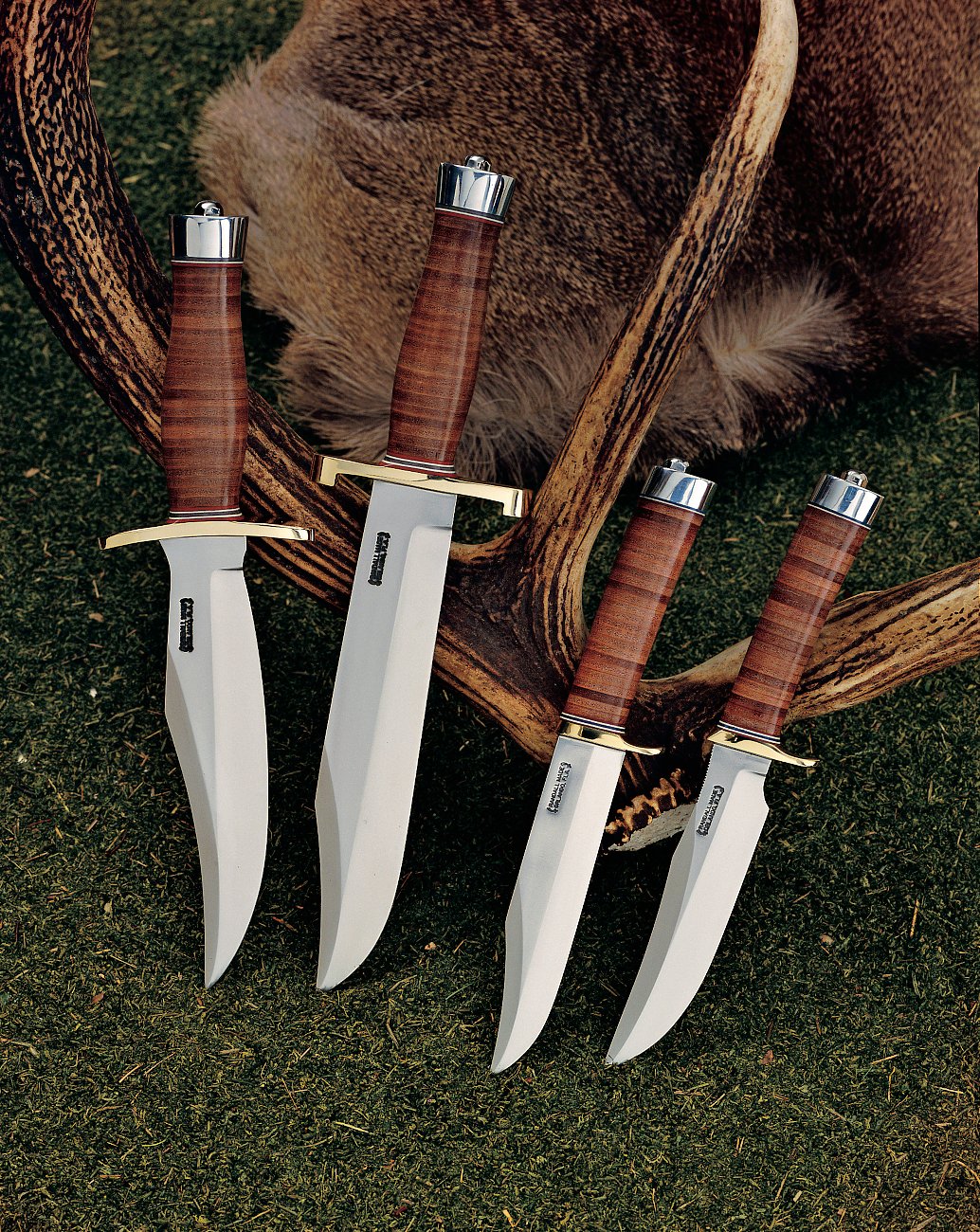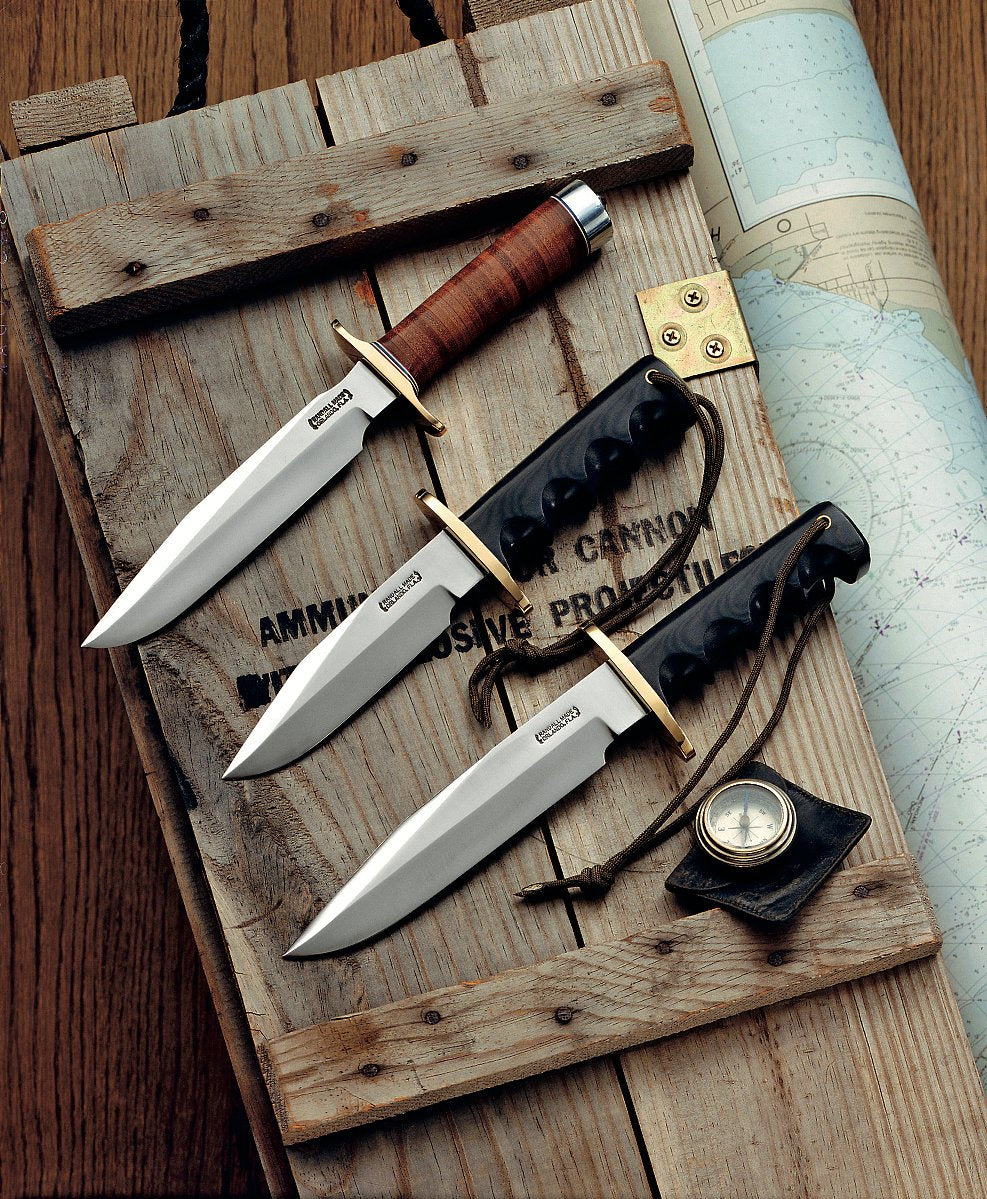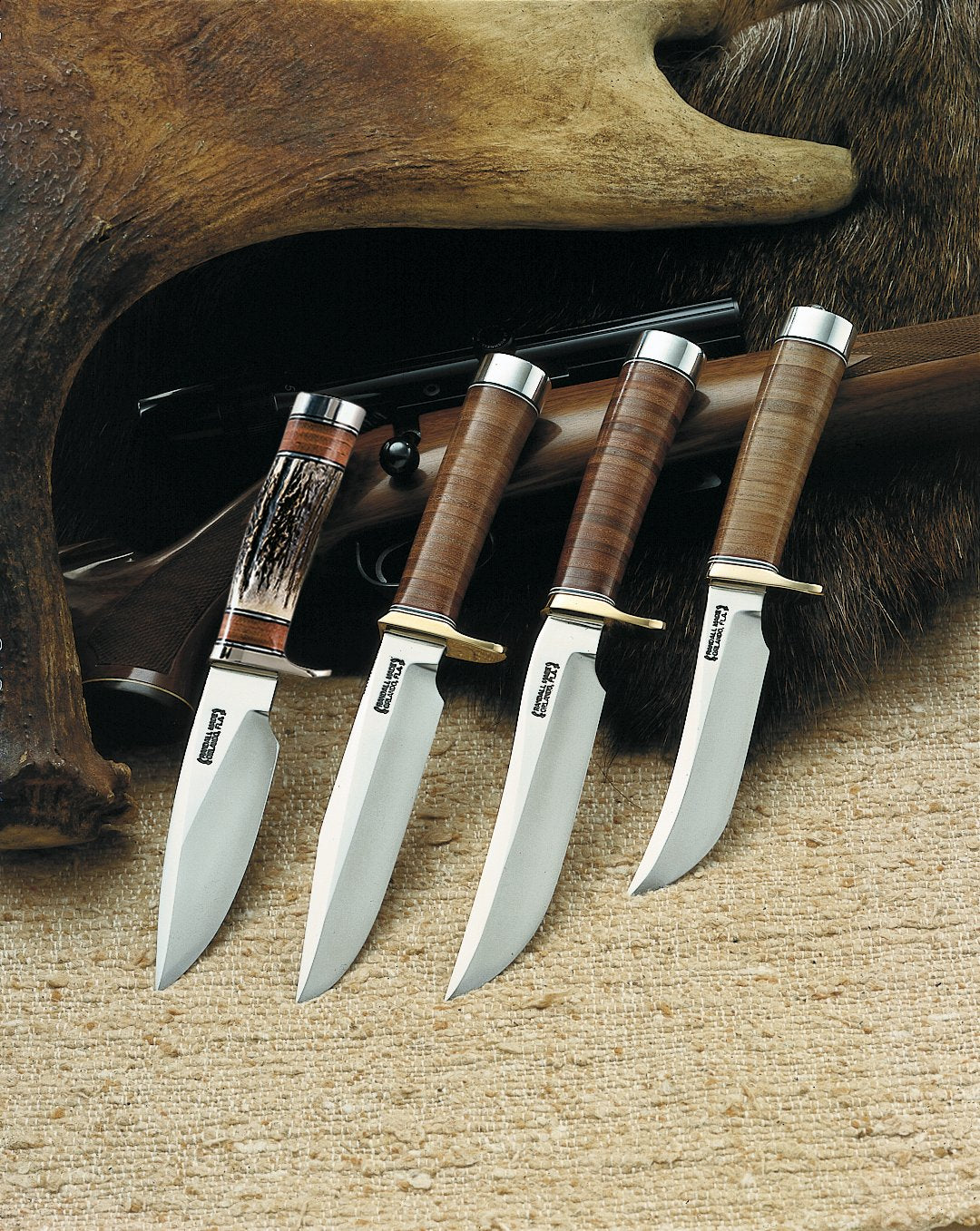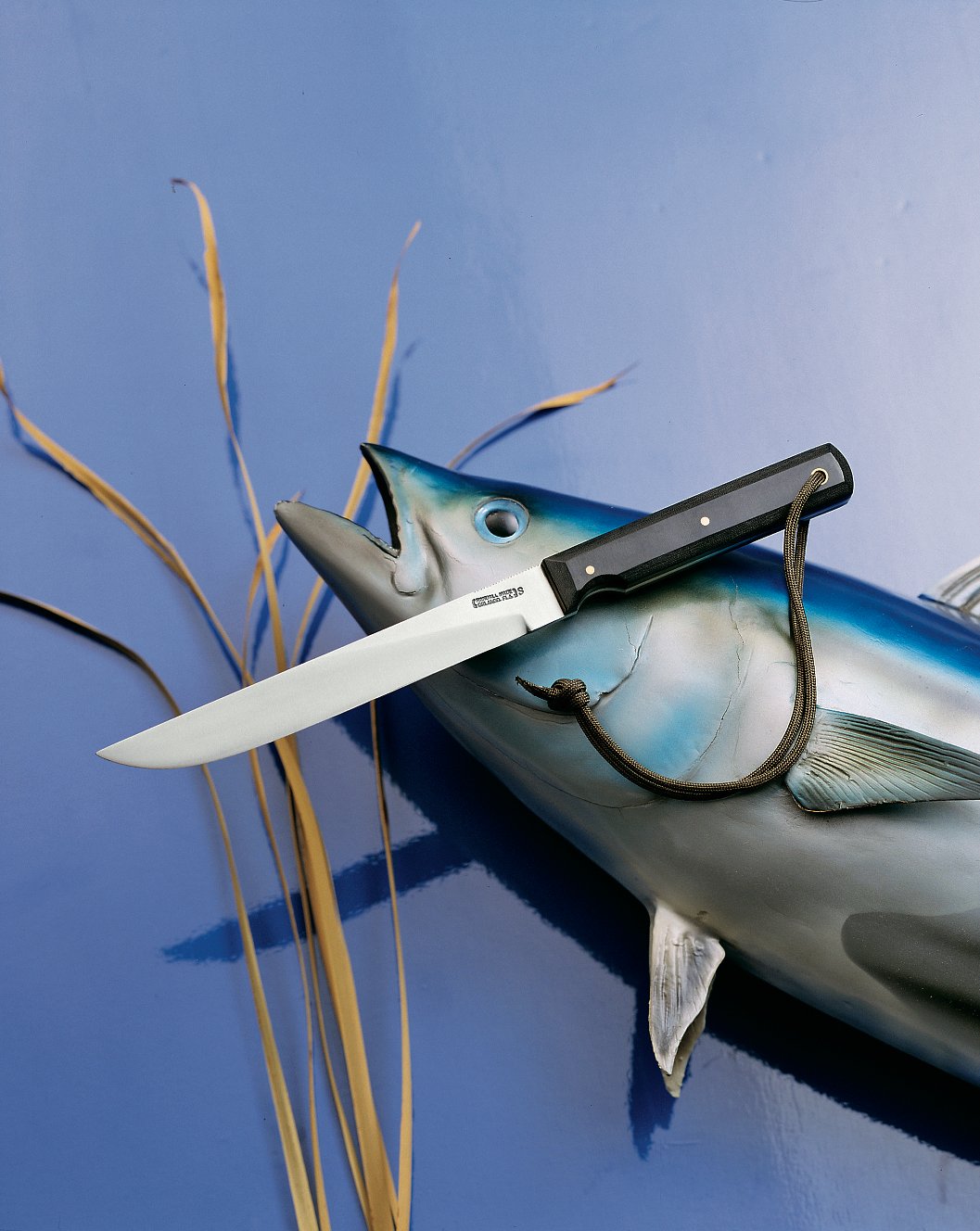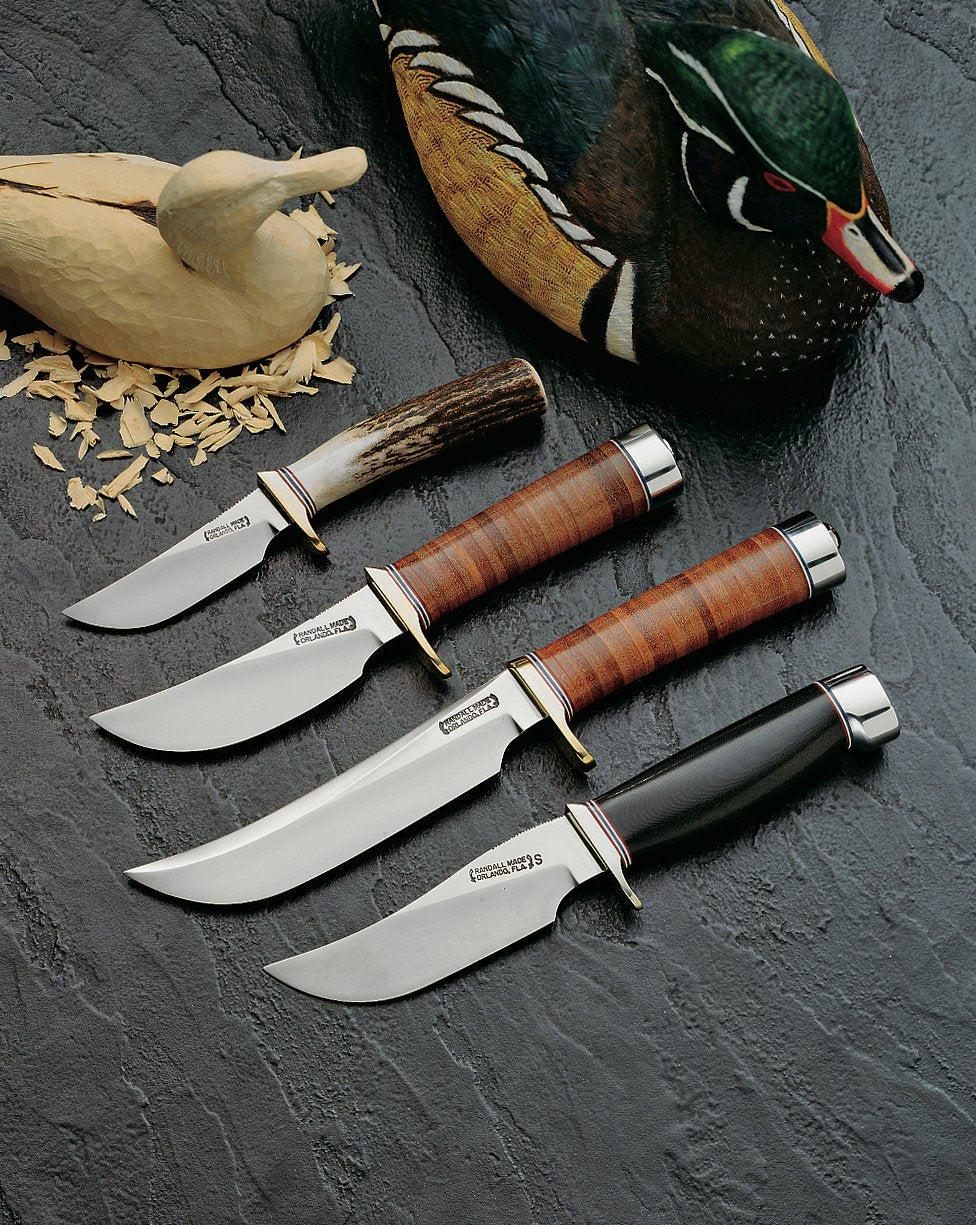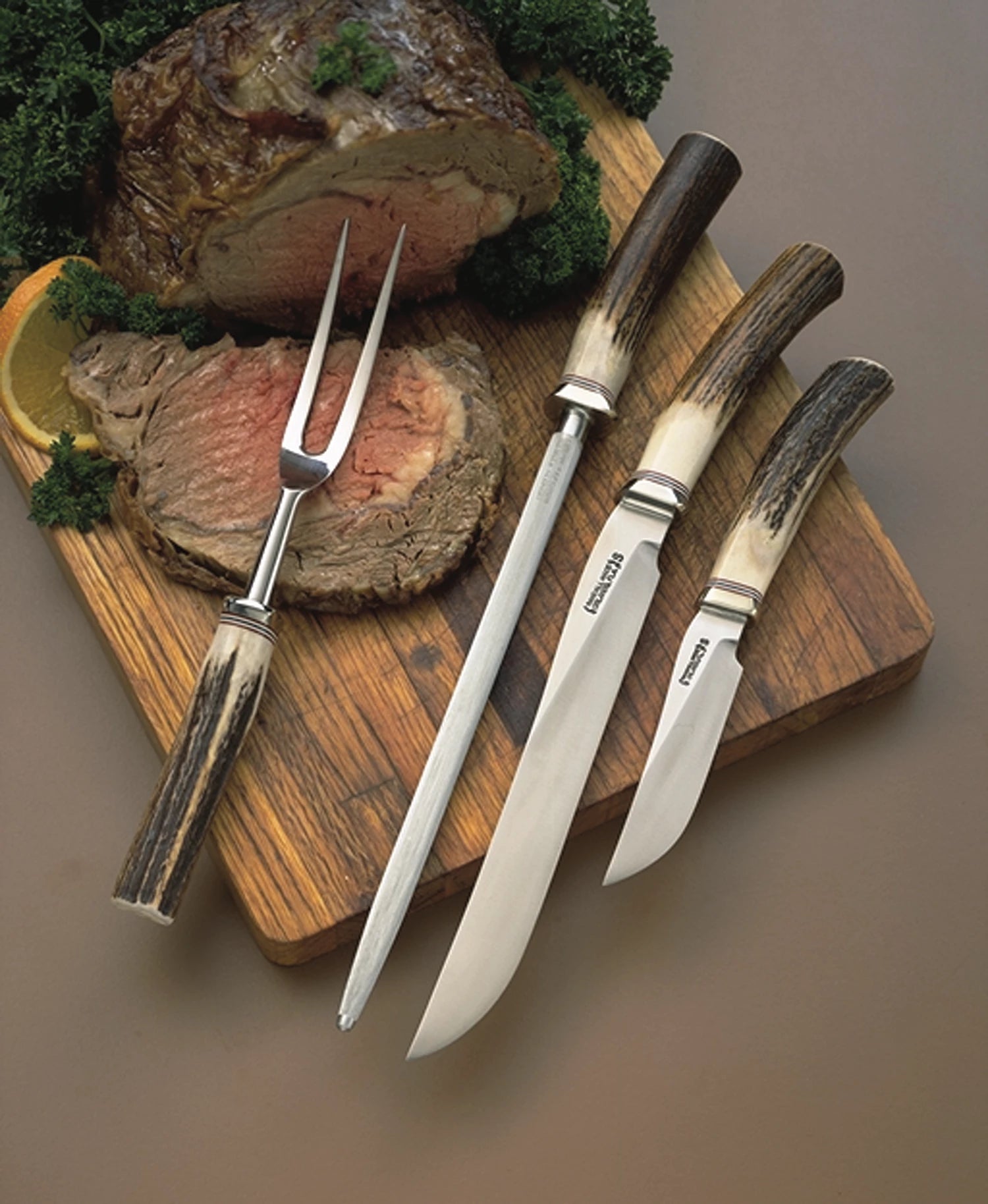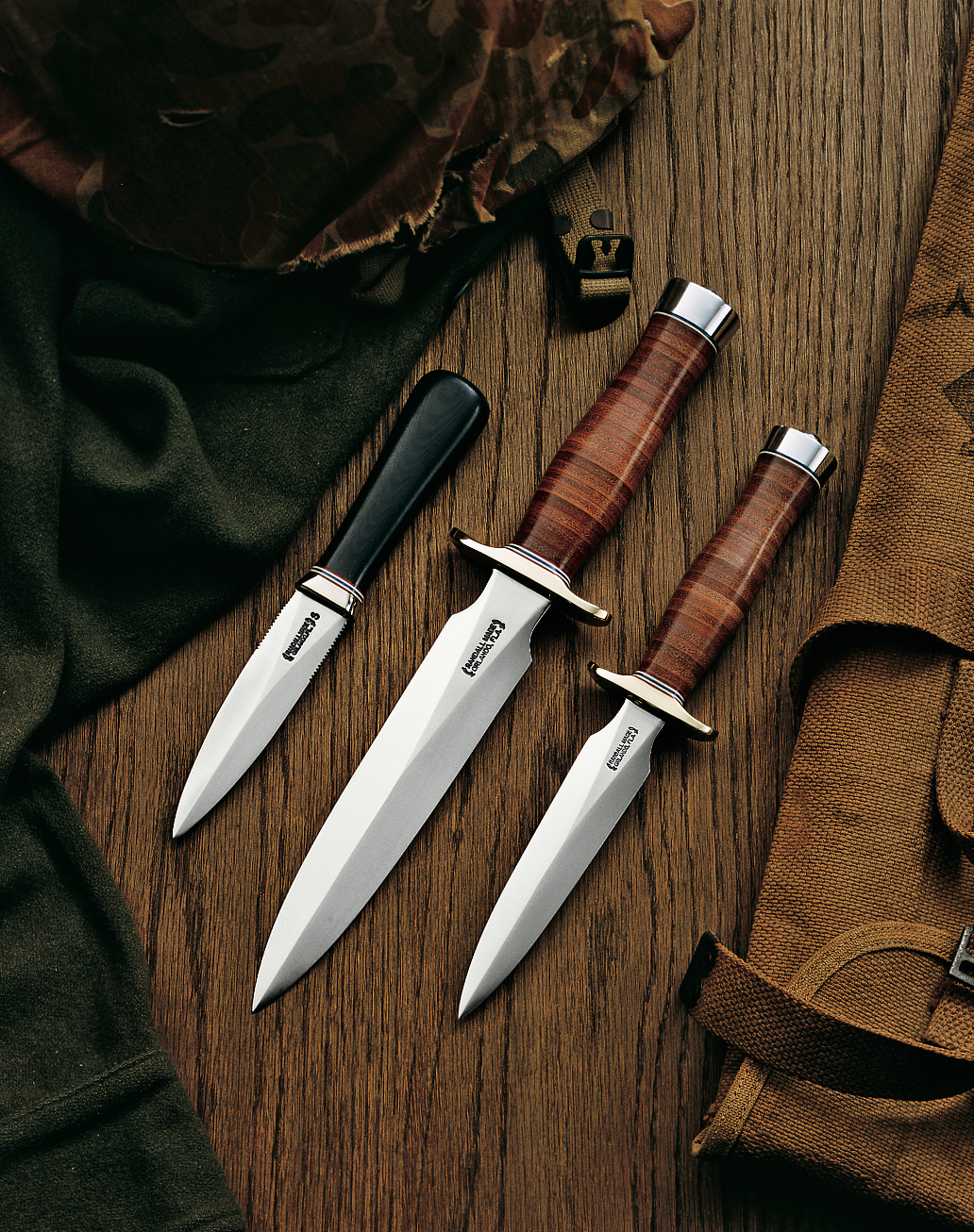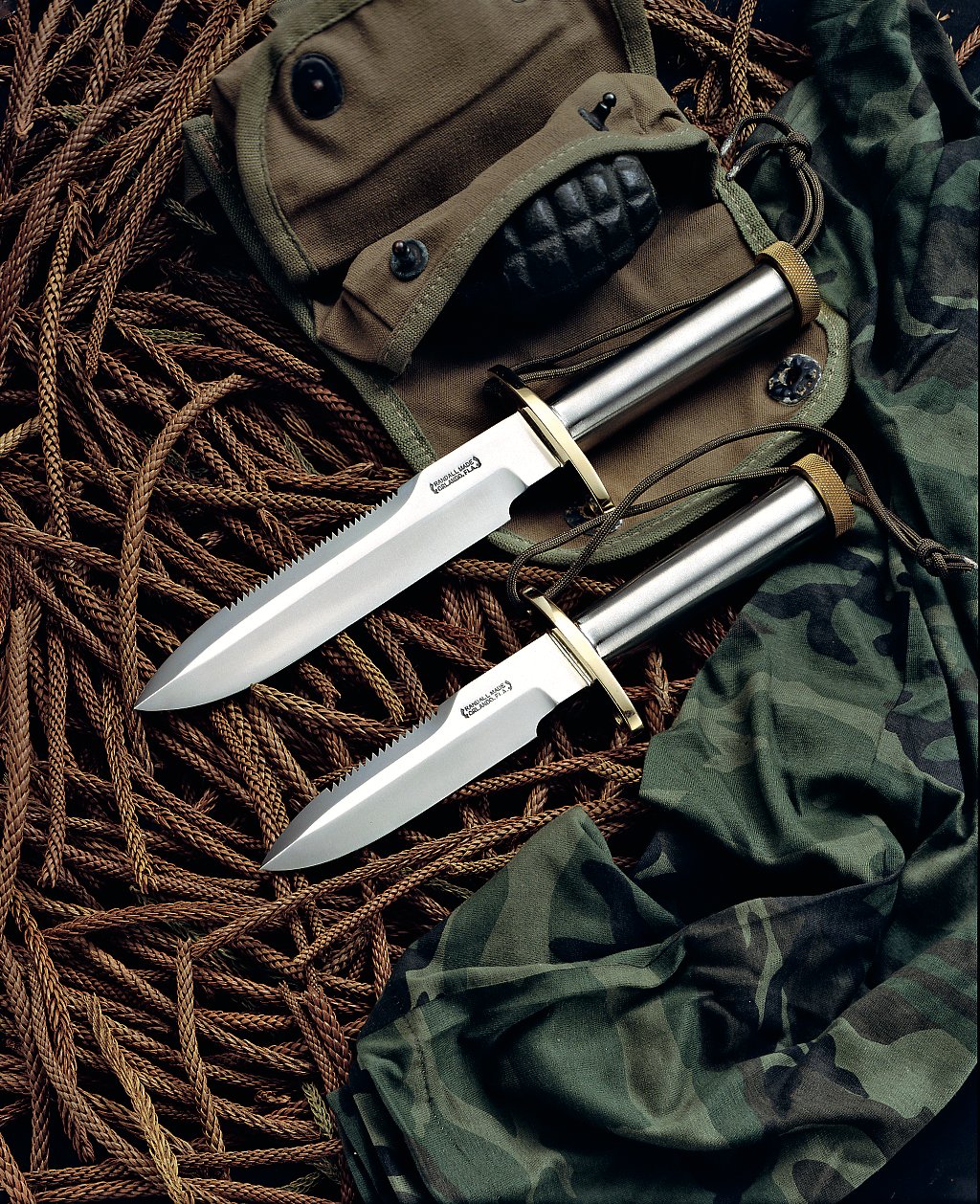Only the best quality material, craftsmanship and experience will produce the finest knife. We use the following procedure, and you certainly may try it if you desire.
KNIFE CONSTRUCTION
KNIFE CONSTRUCTION
THERE ARE NO SHORT CUTS IN THE HANCRAFTING OF RANDALL MADE KNIVES
1.
Obtain a piece of carbon tool steel knife stock.
2.
Heat it cherry red and hammer out the rough blade in the general shape desired.
3.
Grind the rough forged blade to the size and shape of the blade desired.
4.
Harden the blade by heating it cherry red and then immersing it in tempering oil. Draw out the brittleness and internal stresses by tempering blade at low heat until it becomes a straw blue color and can be cut with a new file.
5.
Grind in lines, bevels and contours and remove roughness.
6.
Use a coarse hone and true up the cutting edge, removing any remaining waves and unevenness.
7.
Refine the blade on a fine grit wheel to remove scratches made by the coarse hone.
8.
Smooth the blade, first with coarse and then with fine grit emery cloth.
9.
Polish the blade on a glued-up coarse emery wheel.
10.
Cut and shape the hilt from one-quarter inch brass. Drill a hole and file it to rectangular shape to fit the handle tang. Fit hilt to the blade and solder in place.
11.
Fit the handle to the tang, cutting rectangular holes in pieces of fiber, plastic or leather. Slip into place and glue each separately. Drill a piece of one-half inch Duralumin for the butt and recess it to fit the tang. Drive it on tightly and peen it into place, or thread end of tang and use nut. When the glue is thoroughly dry, roughly shape the handle with a coarse file. Finish shaping with a finer file. Then smooth it, first with coarse and then fine emery paper. The hilt and butt are filed and sanded as the handle is shaped.
12.
Polish the blade with a medium grit glued-up emery wheel. Polish the hilt and butt on a muslin wheel charged with polishing compound.
13.
Sharpen the blade on a medium grit hone. Always use special honing oil for all honing.
14.
Polish the blade on a fine grit glued-up emery wheel and again polish the hilt and butt.
15.
Give final sharpening to the blade, using a fine grit hone.
16.
For final polishing of the blade, use a hard polishing wheel to remove the last fine hone scratches. Give final polish to the hilt and butt and the final polish to the handle with a soft muslin wheel.
17.
Make or have made a sheath patterned to fit the blade with a stop for the hilt so the point cannot pierce the sheath and with splines along the side to prevent cutting of the stitches. Use a keeper strap and fasteners to hold the knife in the sheath. As a result, just as we take immense pride in each Randall Made knife we produce, you can take pride in each one-of-a-kind Randall Made knife that you own.
1.
Obtain a piece of carbon tool steel knife stock.
2.
Heat it cherry red and hammer out the rough blade in the general shape desired.
3.
Grind the rough forged blade to the size and shape of the blade desired.
4.
Harden the blade by heating it cherry red and then immersing it in tempering oil. Draw out the brittleness and internal stresses by tempering blade at low heat until it becomes a straw blue color and can be cut with a new file.
5.
Grind in lines, bevels and contours and remove roughness.
6.
Use a coarse hone and true up the cutting edge, removing any remaining waves and unevenness.
7.
Refine the blade on a fine grit wheel to remove scratches made by the coarse hone.
8.
Smooth the blade, first with coarse and then with fine grit emery cloth.
9.
Polish the blade on a glued-up coarse emery wheel.
10.
Cut and shape the hilt from one-quarter inch brass. Drill a hole and file it to rectangular shape to fit the handle tang. Fit hilt to the blade and solder in place.
11.
Fit the handle to the tang, cutting rectangular holes in pieces of fiber, plastic or leather. Slip into place and glue each separately. Drill a piece of one-half inch Duralumin for the butt and recess it to fit the tang. Drive it on tightly and peen it into place, or thread end of tang and use nut. When the glue is thoroughly dry, roughly shape the handle with a coarse file. Finish shaping with a finer file. Then smooth it, first with coarse and then fine emery paper. The hilt and butt are filed and sanded as the handle is shaped.
12.
Polish the blade with a medium grit glued-up emery wheel. Polish the hilt and butt on a muslin wheel charged with polishing compound.
13.
Sharpen the blade on a medium grit hone. Always use special honing oil for all honing.
14.
Polish the blade on a fine grit glued-up emery wheel and again polish the hilt and butt.
15.
Give final sharpening to the blade, using a fine grit hone.
16.
For final polishing of the blade, use a hard polishing wheel to remove the last fine hone scratches. Give final polish to the hilt and butt and the final polish to the handle with a soft muslin wheel.
17.
Make or have made a sheath patterned to fit the blade with a stop for the hilt so the point cannot pierce the sheath and with splines along the side to prevent cutting of the stitches. Use a keeper strap and fasteners to hold the knife in the sheath. As a result, just as we take immense pride in each Randall Made knife we produce, you can take pride in each one-of-a-kind Randall Made knife that you own.




